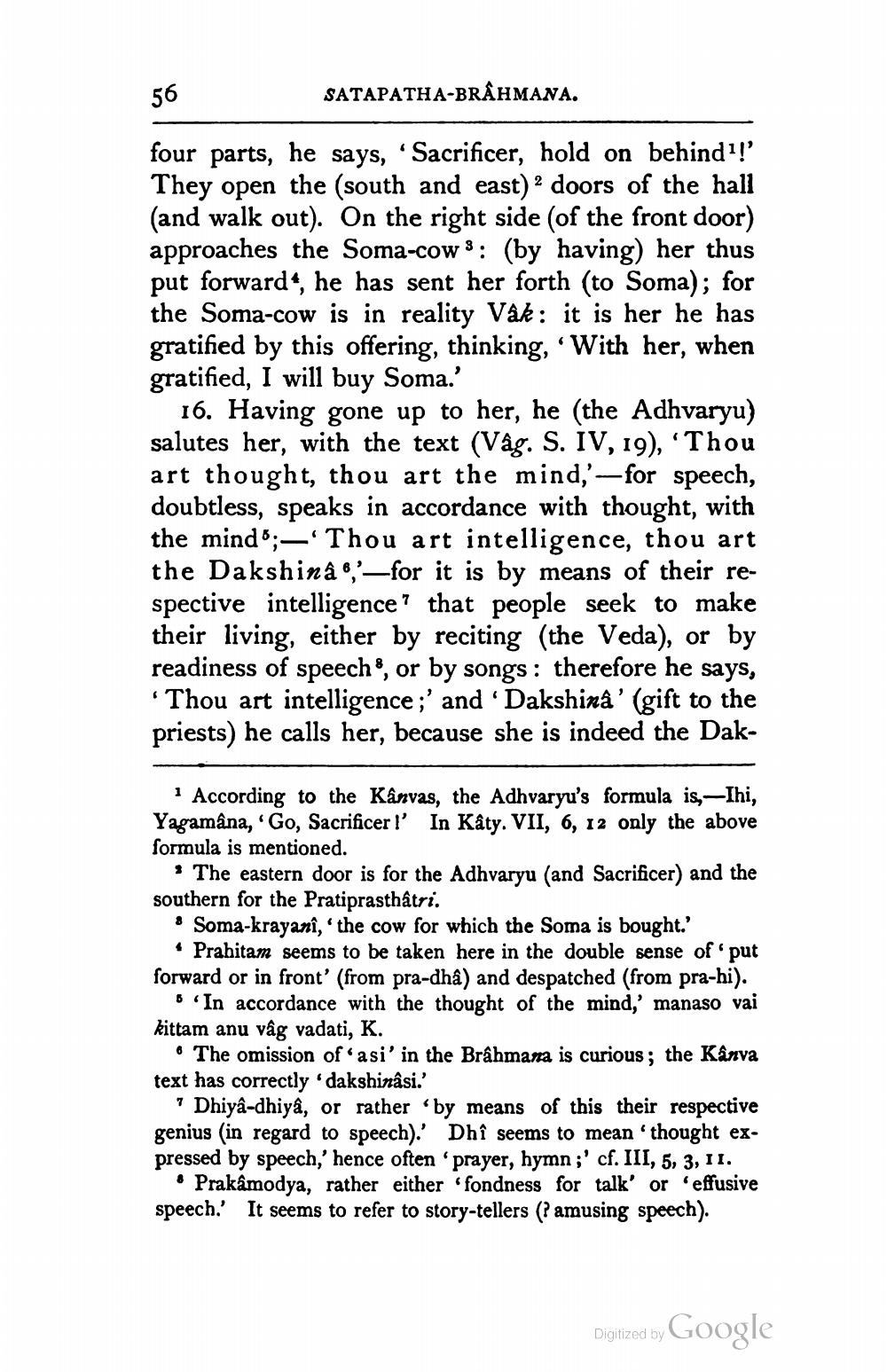________________
56
SATAPATHA-BRAHMANA.
four parts, he says, Sacrificer, hold on behind 1!' They open the (south and east) 2 doors of the hall (and walk out). On the right side (of the front door) approaches the Soma-cows: (by having) her thus put forward", he has sent her forth (to Soma); for the Soma-cow is in reality Våk: it is her he has gratified by this offering, thinking, With her, when gratified, I will buy Soma.'
16. Having gone up to her, he (the Adhvaryu) salutes her, with the text (Vág. S. IV, 19), 'Thou art thought, thou art the mind,'—for speech, doubtless, speaks in accordance with thought, with the mind 6;—'Thou art intelligence, thou art the Dakshina ®,'—for it is by means of their respective intelligence? that people seek to make their living, either by reciting (the Veda), or by readiness of speech, or by songs: therefore he says, 'Thou art intelligence;' and 'Dakshina' (gift to the priests) he calls her, because she is indeed the Dak
1 According to the Kanvas, the Adhvaryu's formula is, -Ihi, Yagamâna, 'Go, Sacrificer l' In Kâty. VII, 6, 12 only the above formula is mentioned.
The eastern door is for the Adhvaryu (and Sacrificer) and the southern for the Pratiprasthâtri.
8 Soma-krayani, the cow for which the Soma is bought.'
• Prabitam seems to be taken here in the double sense of put forward or in front' (from pra-dha) and despatched (from pra-hi).
o 'In accordance with the thought of the mind,' manaso vai kittam anu väg vadati, K.
• The omission of a si' in the Brahmana is curious; the Kanva text has correctly dakshinasi.'
Dhiyâ-dhiya, or rather by means of this their respective genius in regard to speech).' Dhî seems to mean thought expressed by speech,' hence often 'prayer, hymn;' cf. III, 5, 3, 11.
• Prakamodya, rather either fondness for talk' or 'effusive speech.' It seems to refer to story-tellers (? amusing speech).
Digitized by Google




